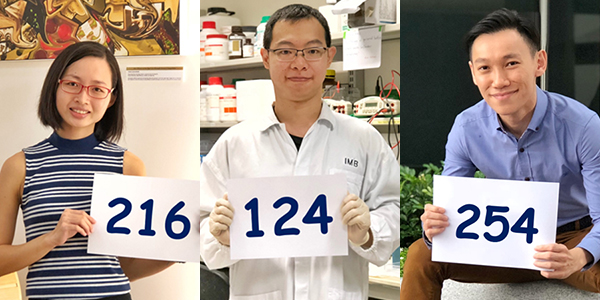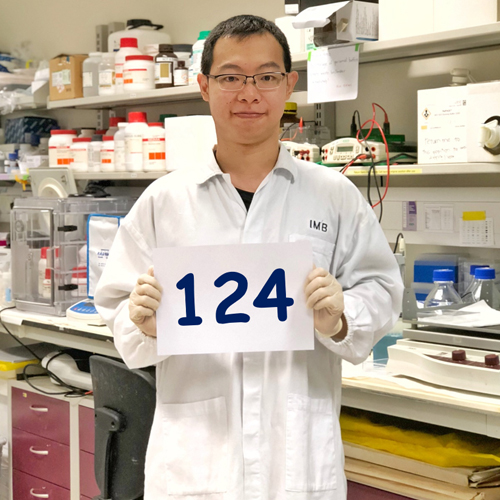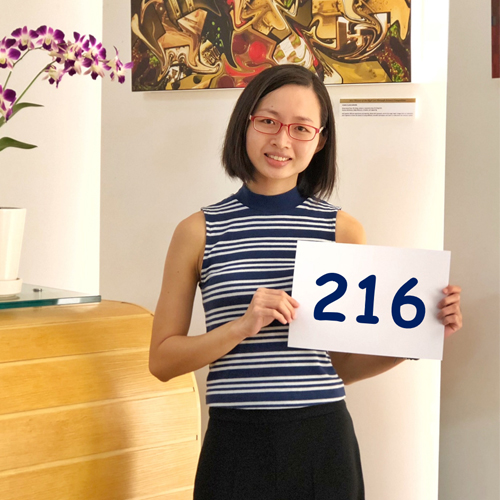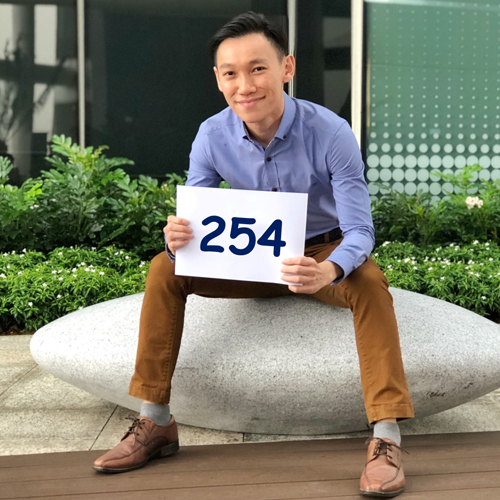Becoming a scientist: Beyond PSLE scores

From EM3 to First Class Honours
Dr Vincent Lim- Institute of Medical Biology
PSLE Score: 124

"I was in EM3 in primary school and was quite the introvert. I often felt out of place in school which probably affected my studies. But thankfully- I had a very supportive form teacher who treated her students like her kids.
In my secondary school years- I was also lucky to have teachers who saw under-performing students as a group with latent potential rather than dread. I think having had a good support system was very important to me as without those helping hands- there's only so far one can go.
It was also around that age that I started to be aware that there was no reason to believe that I was any different from my so-called 'smarter peers'. I thought to myself: if they can do it- I can do it too! I pushed myself to work very hard.
My advice for people who didn't do well in school is this: it's never the end. Society may sometimes seem to say: 'This is your one job- you need to do well in school!' But that's not true. There's never just one job; that's not the reason you were born for.
Grades are not the most important thing. It is merely a stepping stone; if you've got no stone to step on- then run- jump- and climb. What is important is to never give up on yourself and to always keep your options open."
Dr Lim eventually graduated with first class honours from university and later obtained his PhD. He is now a research fellow at A*STAR's Institute of Medical Biology. One of his research areas focuses on helping to improve the conditions of people suffering from atopic dermatitis (AD)- a common skin disease that affects a large percentage of the world's population.
Grades Do Not Determine the Rest of Your Life
Dr Alicia Wong- Singapore Immunology Network
PSLE Score: 216

"I think my PSLE score was the lowest among my siblings and cousins. There was a combination of factors that might have affected my studies early on.
I had self-esteem issues growing up- and then there was the usual pressure from the parents where they constantly compared grades with other kids our age.
I remember when I had gotten back my PSLE score- my mom could not hide her disappointment. She was very worried that I wouldn't be able to make it later on in life. I do understand a parent's worry- but at the same time- as long as the child has done his or her best- the child will find a way to succeed later on in life.
As long as they have the will- there is a way.
Looking back- I wish I hadn't beaten myself up over my score. The 'pain' you feel from a 'low score' is only temporary. Grades do not determine the rest of your life. That score only measures your academic aptitude.
There are a lot of things that are way more important in life- like your character- EQ and having the right attitude.
I mentor students and interns in the course of my job- and I always inculcate in them the importance of learning from mistakes- and the need to understand your own strengths and weaknesses. Your strengths guide you in finding your niche in life.
If you know that you're weak in a particular area- you need to put in the effort to brush up. Practice makes progress- and this also applies to the experiments and research that we do in our laboratories."
Dr Alicia Wong is a research fellow at A*STAR's Singapore Immunology Network. She looks into factors that affect the development of the dendritic cell subtypes- which are cells of the immune system important for eliciting specific responses against infections and inflammations.
Repaying a Lifelong 'Debt' to Society
Dr Liang Huiguang- Institute of High Performance Computing
PSLE Score: 254

"I came from a family with a humble background. My parents were not educated. My dad did not complete Primary 6- and my mom stopped schooling after Secondary Two.
For my bachelor's degree- I was rejected by twice by my university of choice- before finally scrapping through on my third application. This was likely because my 'A' Level results were not great.
I did not take my university acceptance for granted. Therefore- I studied particularly hard for my bachelor's degree and eventually- was fortunate enough to be awarded A*STAR's post-graduate scholarship. At that time- I saw it as an opportunity that could set me up for the rest of my life.
But I was convinced that this monetary award- in the form of an academic scholarship- was not merely a quid pro quo. I served a three-year bond- but I viewed the education I received as a 'lifelong debt' that I want to repay to the society.
In my PhD thesis- I wrote this in my foreword: 'I will never forget my charge to contribute- in whatever capacity my professional training allows- back to the economy of Singapore.'
At A*STAR- I study how technology can be developed for social applications. I run a variety of projects that help beneficiaries like the elderly- the youth at risk- and people with disabilities.
Grades- to me- are not important in determining a person's ability to perform at work. Whenever I interview new job hopefuls- I always focus on a candidate's attitude- skills and experience instead of their academic transcripts.
I am passionate about applying my technical skill sets and know-how to create impact. This is why I challenge myself to develop technology that can change the way the less-fortunate live- and improve their lives on a day-to-day basis."
A*STAR celebrates International Women's Day

From groundbreaking discoveries to cutting-edge research, our researchers are empowering the next generation of female science, technology, engineering and mathematics (STEM) leaders.
Get inspired by our #WomeninSTEM
